Welcome to the Venture Spotlight, an occasional column in which we will profile startups, VCs, entrepreneurs, and technologists, and within these groups, women in tech. Please email your suggestions of people doing interesting things in technology and in the venture world, plus your suggested questions for them. Who do you want to read about and what do you want to ask?
 Women in Tech
Women in Tech
It seems that every year or so, there is a burst of articles or surveys about the lack of women in technology, with a slew of them coming out just this past month:
- Where are the women entrepreneurs?
- Women in Tech: Time to Focus on Solutions
- Women of Color in Tech: How Can We Encourage Them
- Women in Tech Still Struggling: No Magic Remedy
- Pipeline Fund Addresses Lack of Women in Startups
Despite the issues, there are many women actively and successfully contributing to the startup and technology ecosystem. This series of profiles is just a small step to recognize some of the women in our community who are working in the world of technology, startups, and venture capital. First up is Vanessa Fox.
Vanessa Fox, Organic Search Expert
Vanessa Fox is the founder and CEO of Nine By Blue, which provides education and training, software, and strategic consulting to organizations to assist them in maximizing audience engagement and customer acquisition through organic search. Seattle Business Monthly has called her a “cyberspace visionary.” A sought after speaker, she has traveled the globe discussing the evolution of how we search for and consume information. Vanessa writes regularly about the search engine industry, searcher behavior, and technical site architecture for a variety of publications including Search Engine Land, O’Reilly Radar, and MSN Business on Main. Vanessa previously created Google’s Webmaster Central, which provides both tools and community support to help website owners improve their sites with an eye towards gaining more customers from organic search and was instrumental in the sitemaps.org alliance of Google, Yahoo!, and Microsoft Live Search. She has also been an entrepreneur-in-residence with Ignition Partners and served as an advisor for several startups. She is the author of the critically acclaimed Marketing in the Age of Google: Your Online Strategy IS Your Business (Wiley, May 2010), which has been called the “search marketing bible” by technology leaders. Vanessa also hosts the live weekly podcast Office Hours and posts regularly to Twitter (follow her) on a variety of technology related subjects. A California native, she now lives in Seattle.
At what point did you first think about working in tech as a career?
It’s funny, because I never considered tech as a career when I was growing up. I was interested in math and science, and good at them, (I represented my junior high school in a state-wide math competition and took a chemistry class at the local university when I was in high school), but it didn’t occur to me. My last semester in college as an English major, I started realizing that making a living as a writer was going to be tough. I heard about a class in the Engineering school called “technical writing” and decided to check it out. This was a while back, so it was very different than it would be today. Turns out, it was a class intended to teach engineers about the types of communication they might encounter in an office job. We spent a lot of time learning how to write memos and how to properly tri-fold a letter and place it in an envelope with the correct side facing out. While the class wasn’t all that helpful, it was the first time I’d even heard about the idea of writing jobs in technology.
What was your first tech job and how did you get it?
When I graduated, I sent out a hundred resumes for writing jobs and got zero responses. Again, this was in 1993, so there were no handy tools like online job search sites. Instead, I bought newspapers from all of the surrounding areas and poured over the want ads. Then, using my newly learned letter-folding skills, I would send off cover letters and resumes. I also walked five miles in the snow to the post office. Uphill both ways.
I worked at a home improvement warehouse during college and the corporate office had an opening for something called “junior policy analyst” that seemed to mostly be a writing job, so I jumped at it. Turns out, it was in part a technical writing job. I wrote all sorts of documentation, including user guides for the in-house software. That was my first experience working with developers and translating techie speak into something more user-friendly. That experience helped me get my next job documenting APIs in the telecommunications industry, which is when I got deeply involved with technology.
Was your formal education important in your field? Or did you learn more on the job?
I have learned a lot on the job. I graduated from college before the world wide web was in common use. I taught myself HTML using a text editor in 1995 and learned to program (badly) by reading a book on Object Oriented Programming and SmallTalk. (I should note that my first programming experience was BASIC on a Commodore 64 in my grandparent’s den, so I already had mad skilz.) But honestly, despite all the jokes about English degrees, it gave me skills in communication, clear writing, research, and analysis that I use every single day.
What was your first experience managing other people? Do you like the management aspect of your job?
Managing people is really tough. We seem to always end up having full-time jobs in addition to being managers, when managing is a full-time job in itself. I enjoy managing people, particularly the mentoring aspects of helping people grow professionally. Looking back, I learned the most when I had great feedback from managers and mentors. Unfortunately, especially when running a startup, there’s usually little time to mentor and cultivate relationships with employees. Without great employees and an environment where they can thrive and grow, it doesn’t matter if you have the greatest business idea in the world, it’s likely to fail. It’s a hard balancing act for an entrepreneur.
I first managed people fairly early on and to be honest I wasn’t great at it. A big realization that I was doing it wrong came years later when I was at Google. I was at a leadership workshop and learned that the best way to manage people is to manage them how they want to be managed, not how you would want to be managed.
If you were not working in tech, what would you do?
If this question also assumes I’d magically be independently wealthy, I’d probably write novels.
Best advice anyone ever gave you?
The best advice is also the hardest to take. Learn to say no. It’s one thing to learn not to be guilted into doing things that you don’t want to do, but the trick is saying no to things that you do want to do. Because you can’t do everything. But saying no to great stuff is incredibly difficult.
What is currently in heavy rotation on your iPod?
I’m not even sure where my iPod is right now. These days, I mostly listen to Pandora and radio. It’s mostly all Glee, all the time. Yes, I’m a total gleek. Oh, there’s also my weekly podcast Office Hours. Hint, hint.

